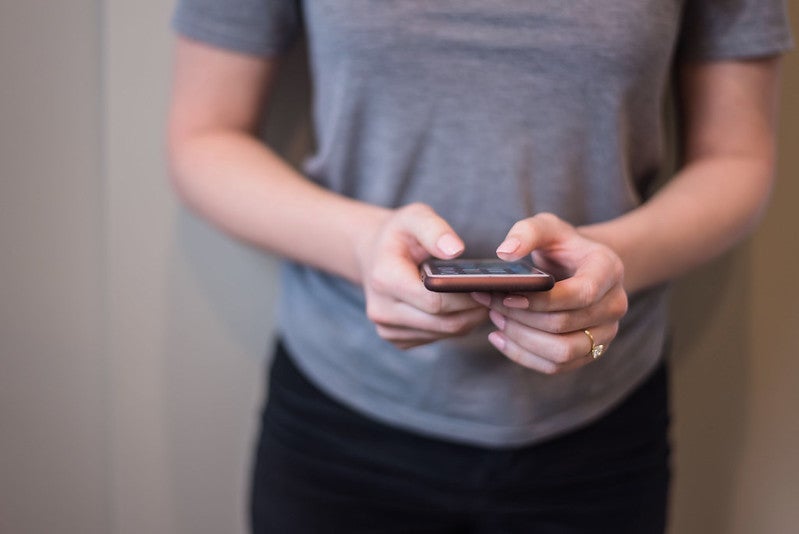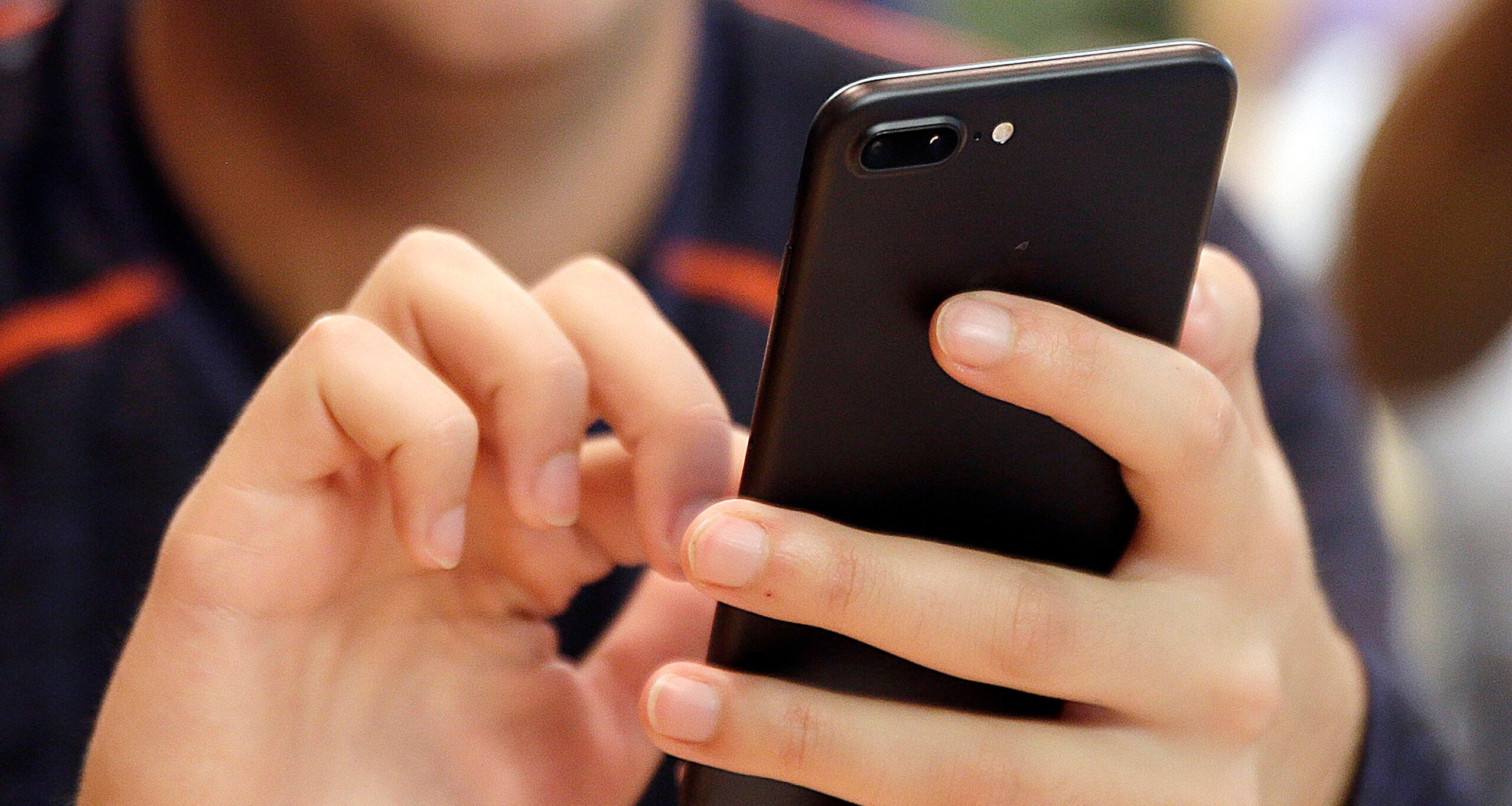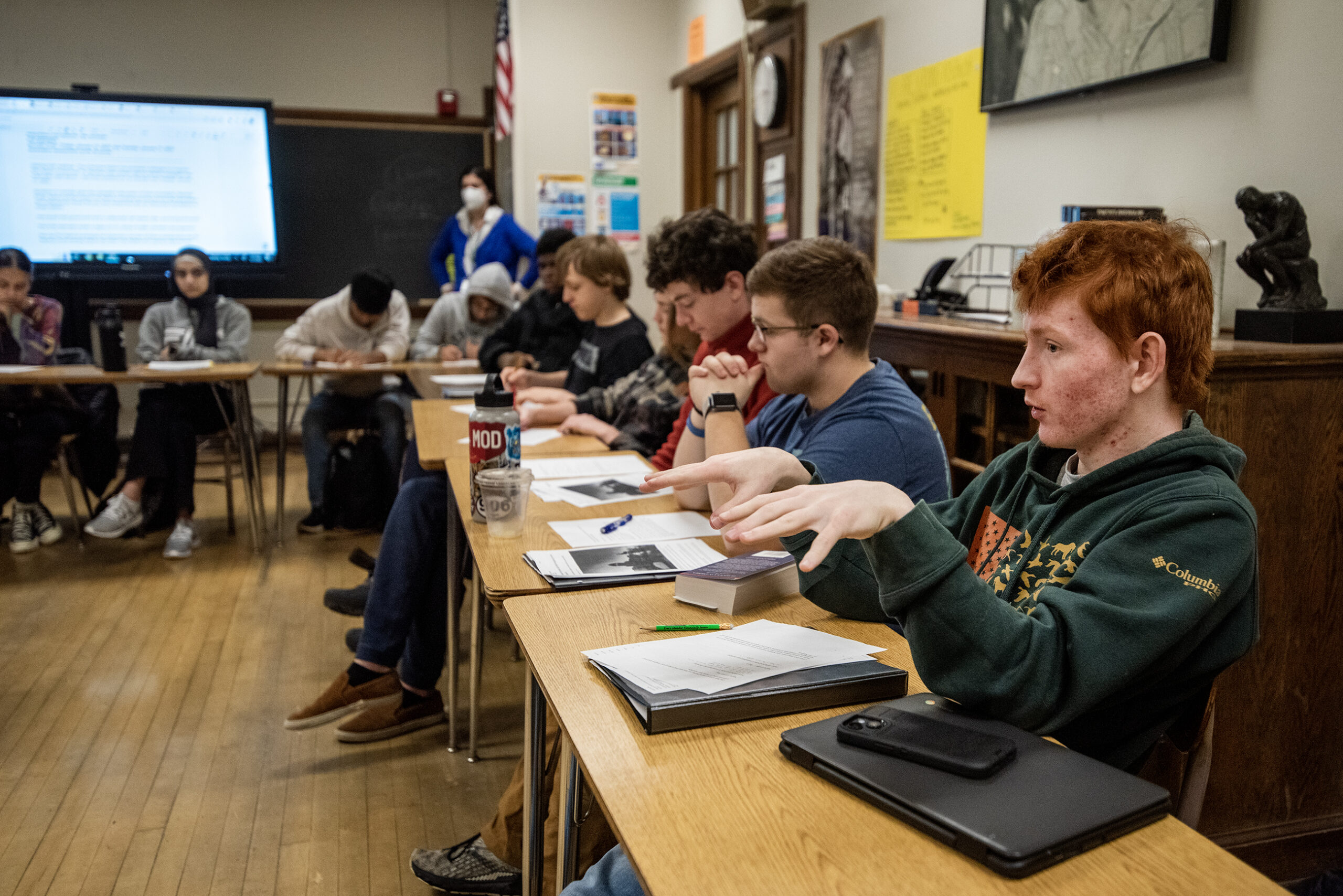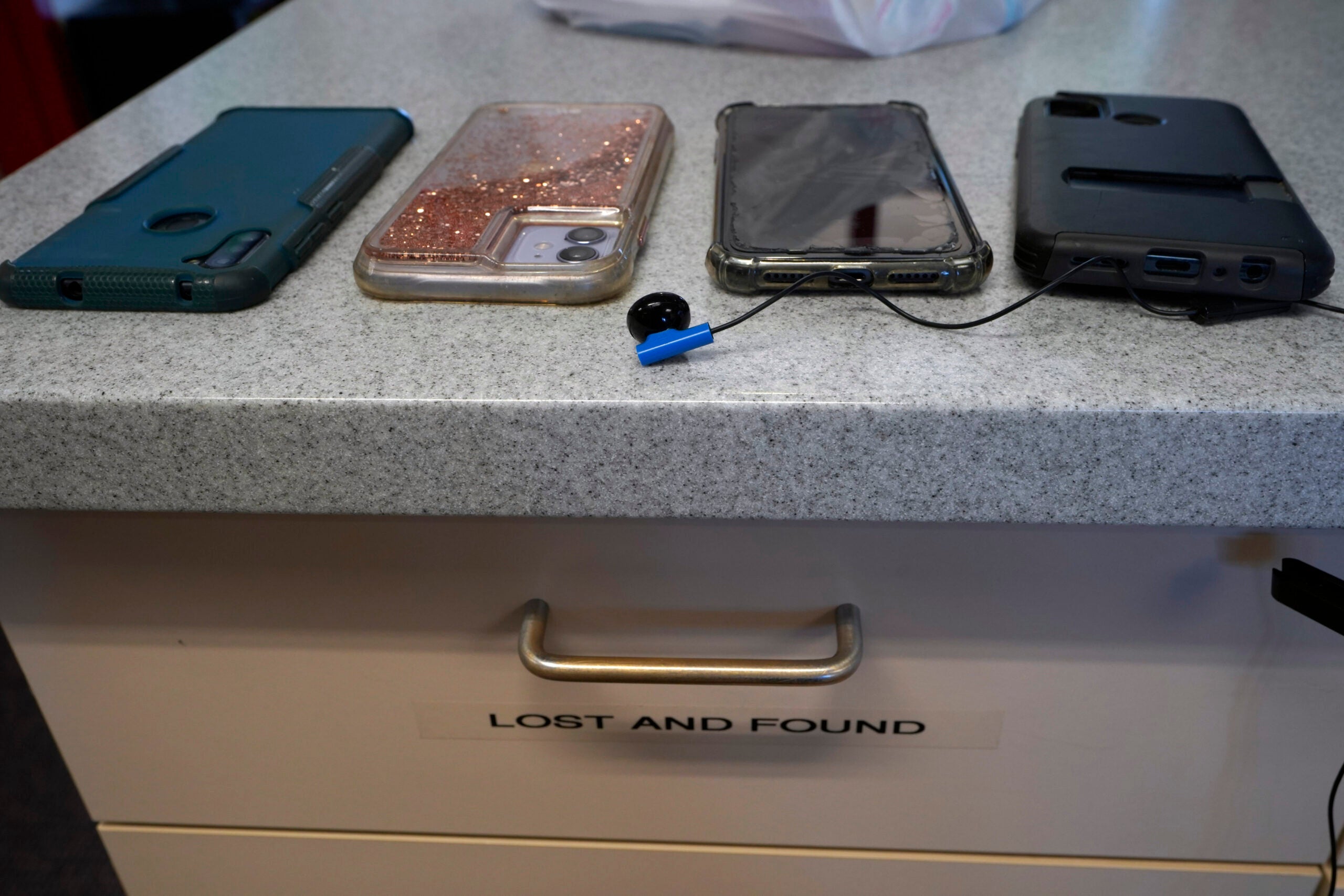When Wisconsin students head back to the classrooms next week, many will have to leave their phones behind — in door-hanging pockets, their lockers or special locking pouches.
Most Wisconsin schools already mandate that cell phones be kept out of sight during class time.
But some school administrators have decided that isn’t enough. They believe that phones must be physically separated from students to deal with growing attention, sociability and mental health issues among youth.
News with a little more humanity
WPR’s “Wisconsin Today” newsletter keeps you connected to the state you love without feeling overwhelmed. No paywall. No agenda. No corporate filter.
Schools in La Crosse, Sheboygan Falls, Medford, Galesville, Clinton and Eagle River are instituting such rules this year. Kenosha is requiring students to keep phones in backpacks but banning any headphones on school property.
They are part of a growing national trend. Last year, Florida adopted a law requiring public schools to ban the devices during class time and to restrict social media sites on school Wi-Fi. Los Angeles schools are preparing for a blanket ban on cell phones next spring after the city’s school board approved the ban in June. And the nation’s largest school district, New York City, seems to be inching towards a similar policy.
Administrators are making new policies on the back of several warnings from U.S. Surgeon General Vivek Murthy — the nation’s highest public health authority — that extensive social media use can cause depression, anxiety, self-esteem issues, sleep difficulties and eating disorders for adolescents.
In Wisconsin, the state’s 2023 Youth Risk Behavior Survey found that one in three students had felt depressed almost daily for a period of two weeks or more, and that one in five students had engaged in nonsuicidal self-harm. It also found that mental health issues disproportionately affected girls.
Cell phones may worsen youth mental health and attention
Jodi Butler is the principal of Medford Area Middle School in central Wisconsin.
She said that cell phones make interpersonal conflicts — including occasional bullying — more hurtful to students.
“Middle school is hard enough, so if those things are following you home at the end of the day, and they’re tormenting them through social media through the evening, it makes it really hard for the kids to come to school and be successful,” Butler said.
“The parents will send a series of screenshots to us, of messages or things that are on Snapchat — a lot of times it’s Snapchat or Instagram — that are being posted about their child, and they’ll send it to us, because then their child doesn’t want to come to school the next day,” she said.
Wally Gnewikow is the principal of Logan High School in La Crosse. He said cell phones also make it harder for teachers to keep students focused.
“Too many kids were unengaged with the class and the lesson because they were waiting: when can I sneak a peek at my cell phone, when can I jump on quick to social media, when can I see if somebody snapped something to me or sent me a text,” Gnewikow said. “The teachers believe that was the focus of too many students.”
Gnewikow said that, last year, Logan required that cell phones not be “seen or heard” during class. But too many students claimed they were checking their phones for “this or that,” leaving too much “grey area” for the teachers. This year, every classroom at Logan will receive a lockbox. Students will place their phones in the box at the beginning of class, and retrieve them at the end.
In Medford, the school district is equipping each student with a locking pouch, made by the California-based company Yondr. Middle and high-school students will have to put their phones in the pouch for the entire school day. The pouches can only be unlocked when placed on special magnets, located at major exits in school buildings.
Some schools have already taken steps
Jeff Tarkowski has worked as a counselor at St. Catherine’s High School for over 20 years.
The private Catholic school in Racine has required students to lock their phones in Yondr pouches since November 2021. Tarkowski said the policy has been a “positive experience” for his students.
“I see them in their back pockets — their pouches — or they put them in their locker, and the bottom line is, whenever I’ll do lunch duty or whatever, they’re not out. I don’t see any phones at all,” Tarkowski said.
“It’s huge. You see all those things about zombie students and that if we would have them here, like let them use it during lunch, we wouldn’t have the social interaction that we have going on,” Tarkowski said. “In the lunchroom people are engaged, either eating or talking to somebody at their table, and the phones are a non-factor.”
Tarkowski said students report less bullying since the cell phone policy started, and said teachers have an easier time holding students’ attention.
“I think that’s a good thing to help us build community, and I think most schools would like that,” Tarkowski said. “Let’s build some social skills, and do some face-to-face stuff. You guys got enough time outside of school to be on your phone looking at whatever.”
Similar bans were already in place before this year at some schools in Luxemburg, Beloit, Portage, Wausau and Wauwatosa. At Germantown High School, students do not have to part with their phones but can face municipal fines if caught using them.
A state senator plans legislation
Dan Knodl, R-Germantown, represents an area north of Milwaukee in the Wisconsin State Senate.
He said it’s time for a consistent state policy on cell phone use in class.
“They’re simply a distraction in the classroom, and so we’d want to have them not at the desks and in hand of students during instructional time,” Knodl said.
He specified that his legislation would only cover class time, not lunch period or windows of time between classes. He also said the law would have to go further than just keeping phones in students’ backpacks —”they’d have to be separated from their person.”
Knodl recently wrote a column in the Germantown Express-News that outlined some of his thinking on the issue. He said the “conversation is just beginning.”
“There’s no question that this concern has been noted in all different districts, whether they’re Republican areas or Democrat areas, so this is coming from teachers that this is a distraction that needs to be addressed,” Knodl said.
The state senator said he will try to introduce the legislation this year. He hopes for bipartisan support.
“A goal here is to take the pressure off of the school boards and the superintendents who can get into these individual conversations with specific parents, or groups, or students, and that we put this in place at the state level so that they have something that they can then lean on,” Knodl said.
Wisconsin Public Radio, © Copyright 2025, Board of Regents of the University of Wisconsin System and Wisconsin Educational Communications Board.






